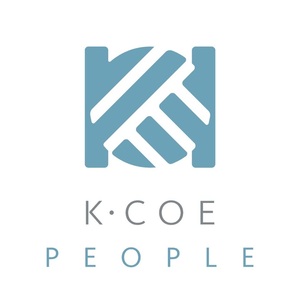Webinar focuses on using communication, culture in ethanol plants

May 23, 2019
BY Matt Thompson
According to Danielle McCormick, principal at KCoe People, it all comes down to communication.
“Solid communication is going to be at the foundation of any successful culture,” she told attendees of Ethanol Producer Magazine’s webinar, “Creating a High-Performance Culture,” which was sponsored by KCoe People. “Good communication techniques are foundational, but critical, as we look at building a high-performance culture,” McCormick said. She added that creating a positive culture is one of the keys to hiring and retaining top talent.
Because communication and culture play important roles in retaining and keeping talent, the webinar focused on training and coaching, delivering successful feedback, and talent development.
Advertisement
Advertisement
In terms of managing employee performance, McCormick said identifying reasons for performance gaps is important. “When we’re looking at managing performance gaps, the first thing I really challenge any of our clients to do is to really commit to digging into why the performance gaps exist.” She added that many times, training is the issue.
Vikki Nicometo, talent advisor for KCoe People agrees. She said that many organizations invest in training the hard skills, but not soft skills, like critical thinking or communication. “Without those, employees can struggle and ultimately fail,” said Vikki Nicometo, talent advisor for KCoe People. She added that most organizations that have high-performing cultures invest in both.
While training shouldn’t be overlooked, “Effective coaching is what I would call the secret sauce that can take a mediocre organization and turn it into a world-class organization,” Nicometo said. She also outlined some effective feedback delivery and coaching techniques.
Feedback and coaching are also an important component of taking a proactive approach to talent development, said Bart Nichols, talent advisor with KCoe People. He said, “Being involved and having a developed process that gets your people excited about how they perform and grow in their roles with your plant, and with their own careers,” helps organizations achieve a high-performance culture.
Advertisement
Advertisement
The process he outlined differs from the traditional annual review structure in how the conversation is structured and how often those conversations happen. “It’s really an ongoing relationship that occurs between the employee, the supervisor, and your plant with the goal of aligning all of those goals that the employee has in their role with their career and with their plant’s strategic roadmap,” he said.
And McCormick said that a plant’s strategy is important, but so too is a plant’s culture. “While strategy is important, and we spend a lot of time helping people to set a solid strategy, it’s only as good as the culture that’s going to support it,” McCormick said.
The full webinar can be viewed here.
Related Stories
The U.S. Energy Information Administration maintained its forecast for 2025 and 2026 biodiesel, renewable diesel and sustainable aviation fuel (SAF) production in its latest Short-Term Energy Outlook, released July 8.
XCF Global Inc. on July 10 shared its strategic plan to invest close to $1 billion in developing a network of SAF production facilities, expanding its U.S. footprint, and advancing its international growth strategy.
U.S. fuel ethanol capacity fell slightly in April, while biodiesel and renewable diesel capacity held steady, according to data released by the U.S. EIA on June 30. Feedstock consumption was down when compared to the previous month.
XCF Global Inc. on July 8 provided a production update on its flagship New Rise Reno facility, underscoring that the plant has successfully produced SAF, renewable diesel, and renewable naphtha during its initial ramp-up.
The USDA’s Risk Management Agency is implementing multiple changes to the Camelina pilot insurance program for the 2026 and succeeding crop years. The changes will expand coverage options and provide greater flexibility for producers.
Upcoming Events










